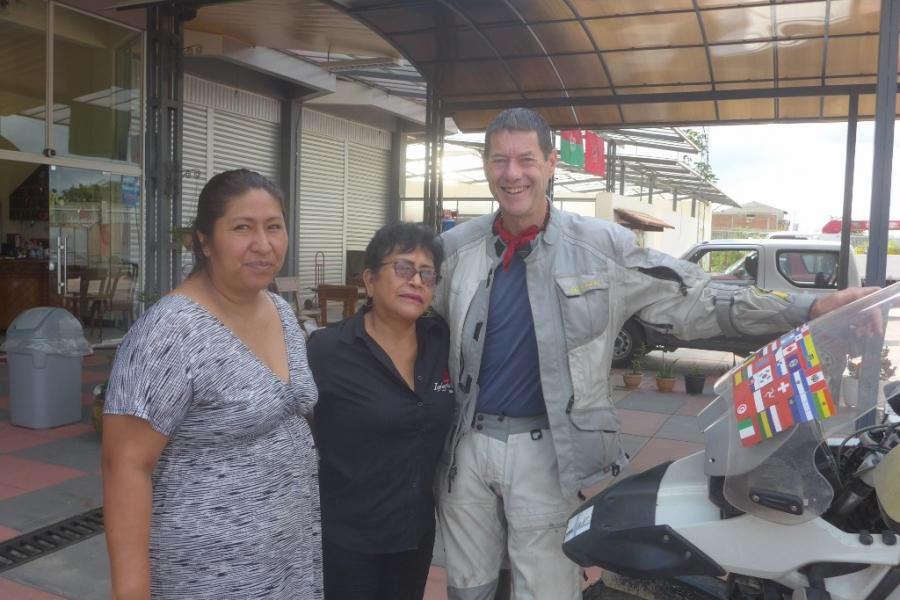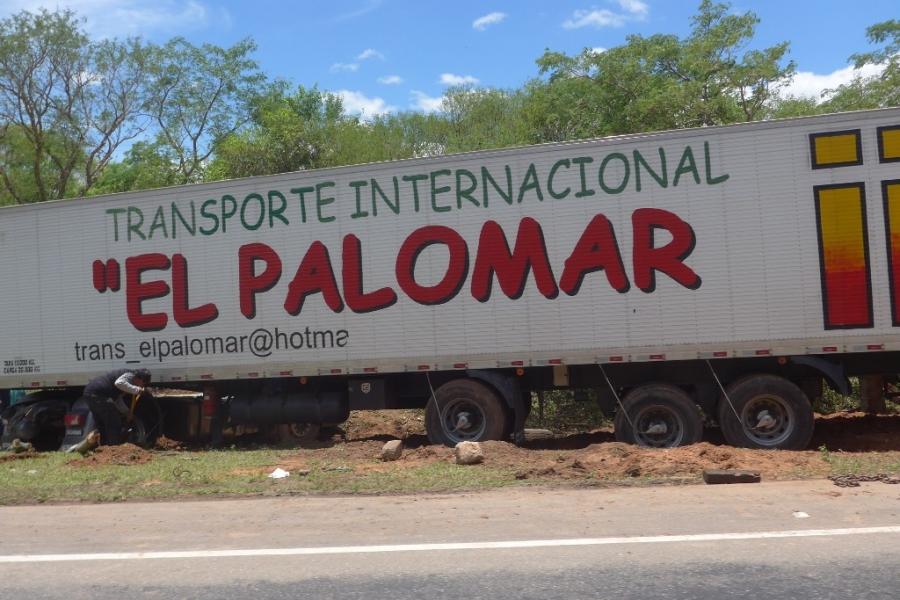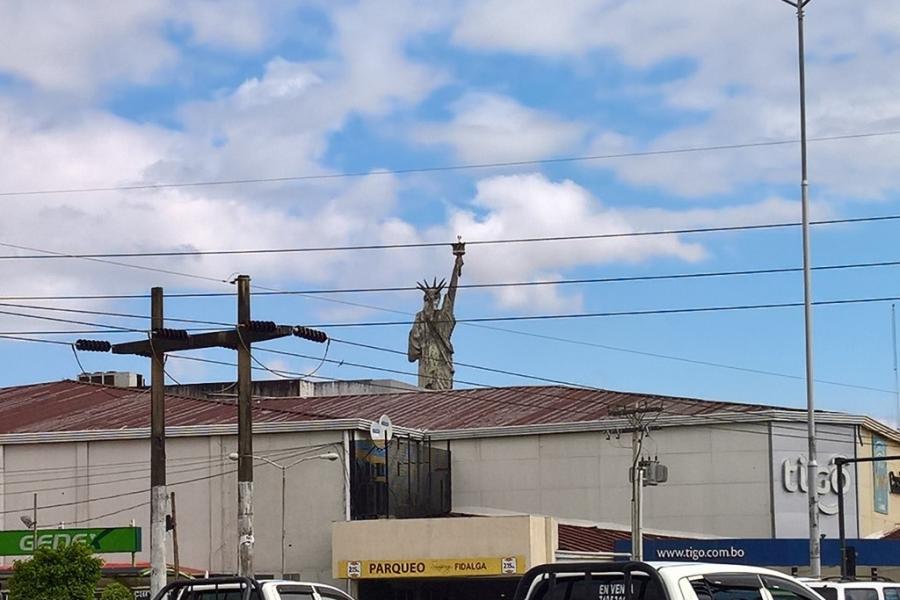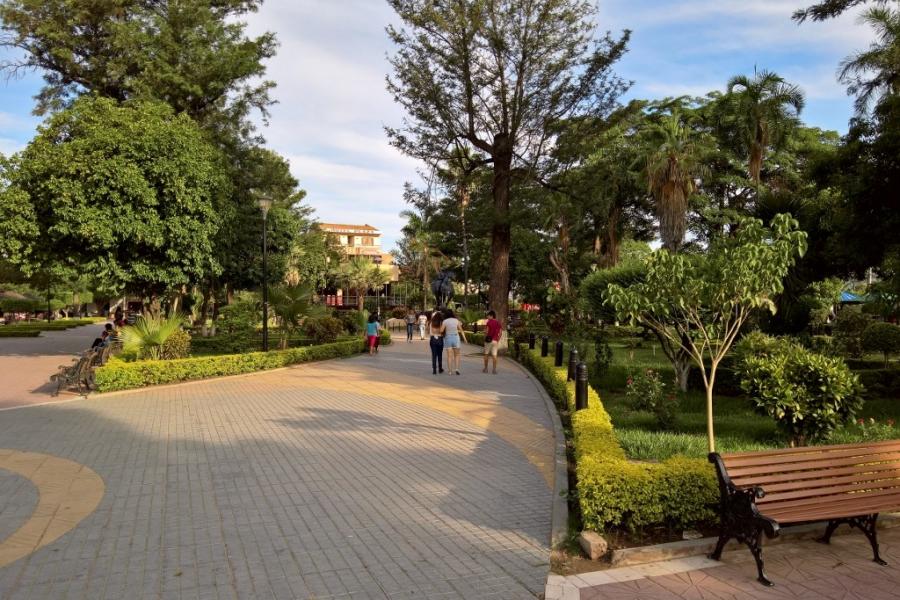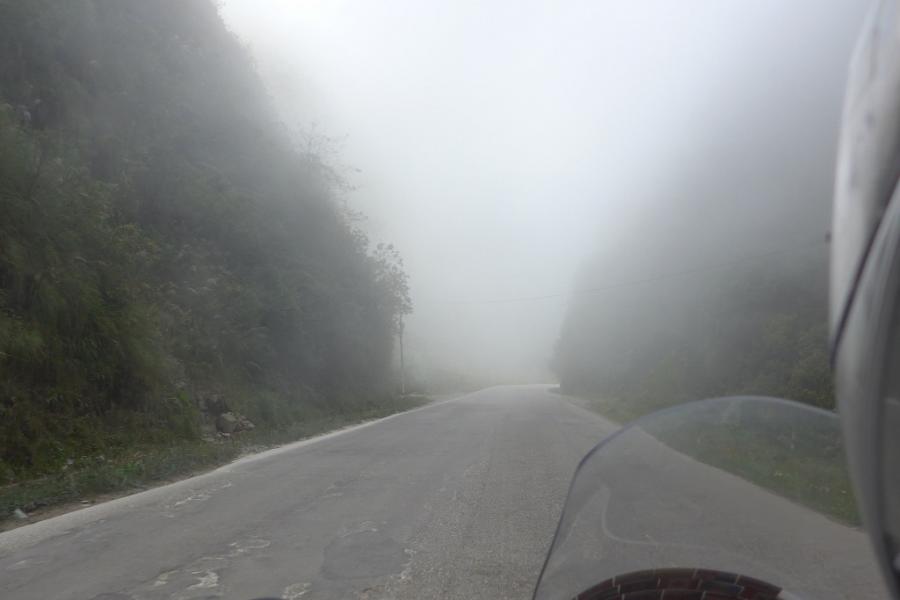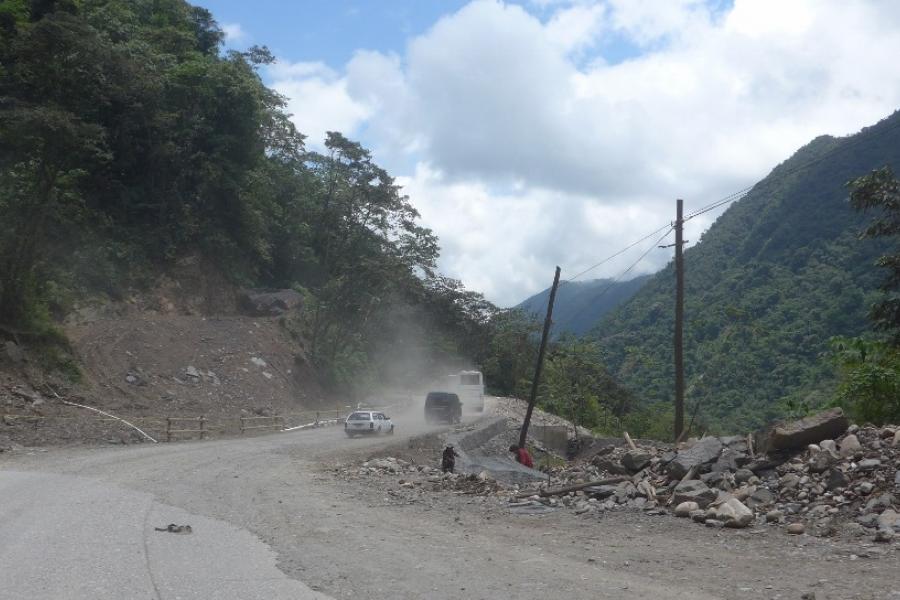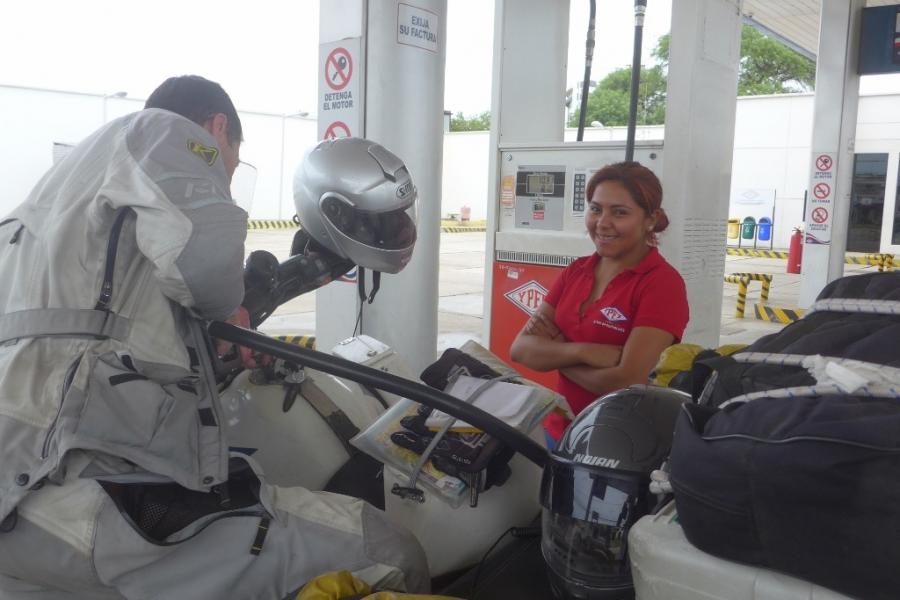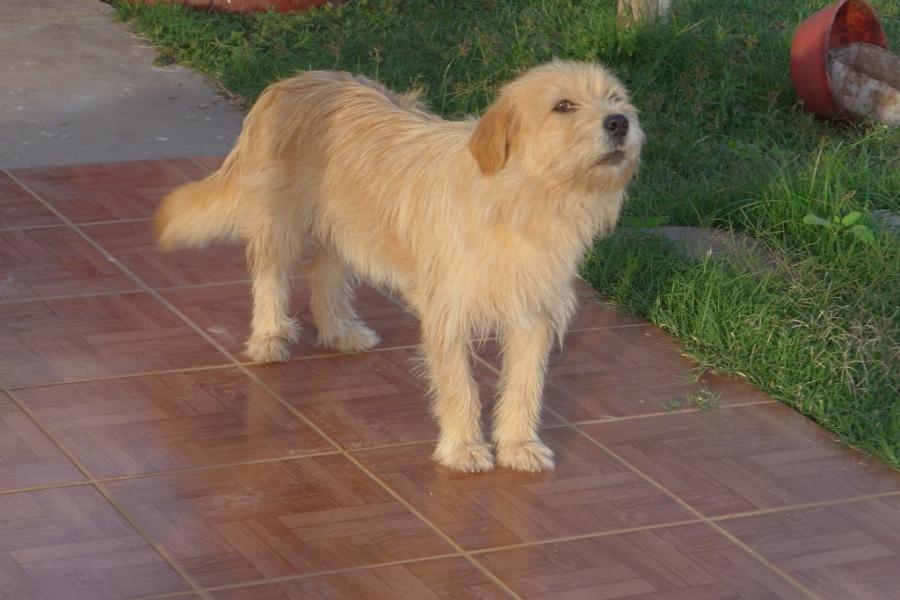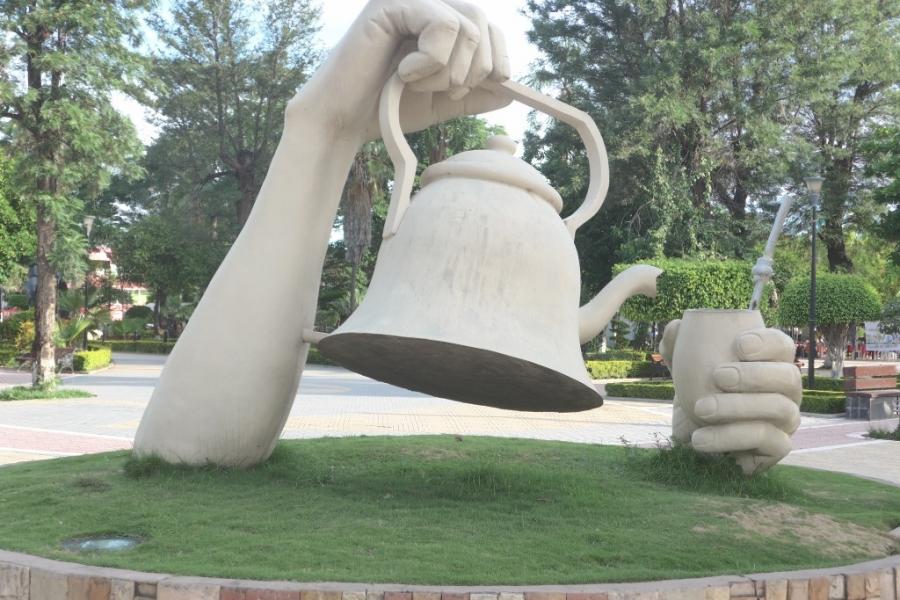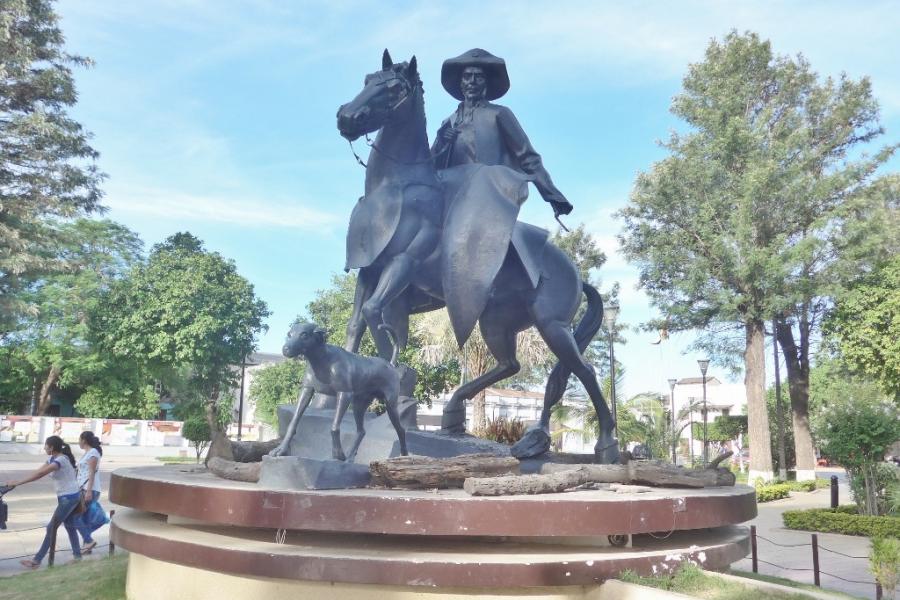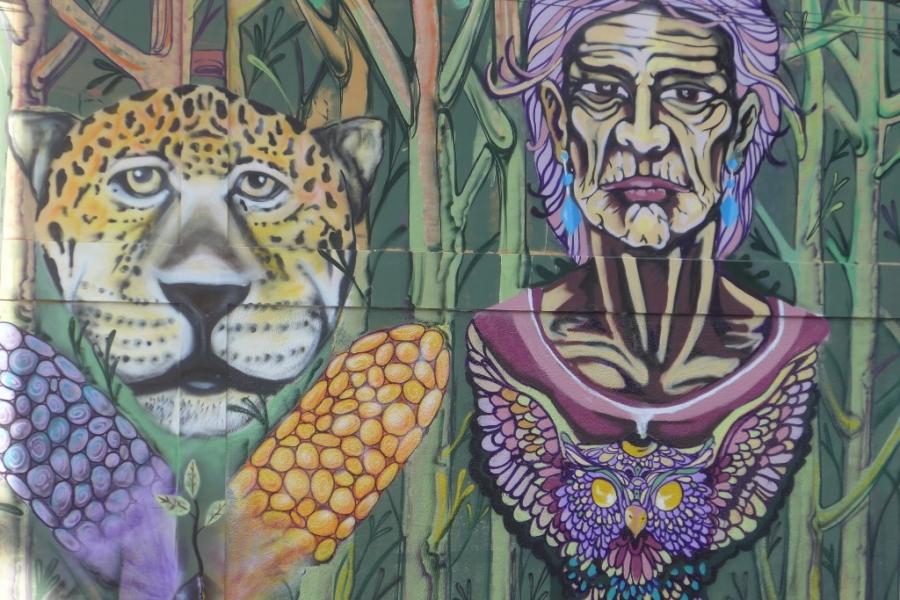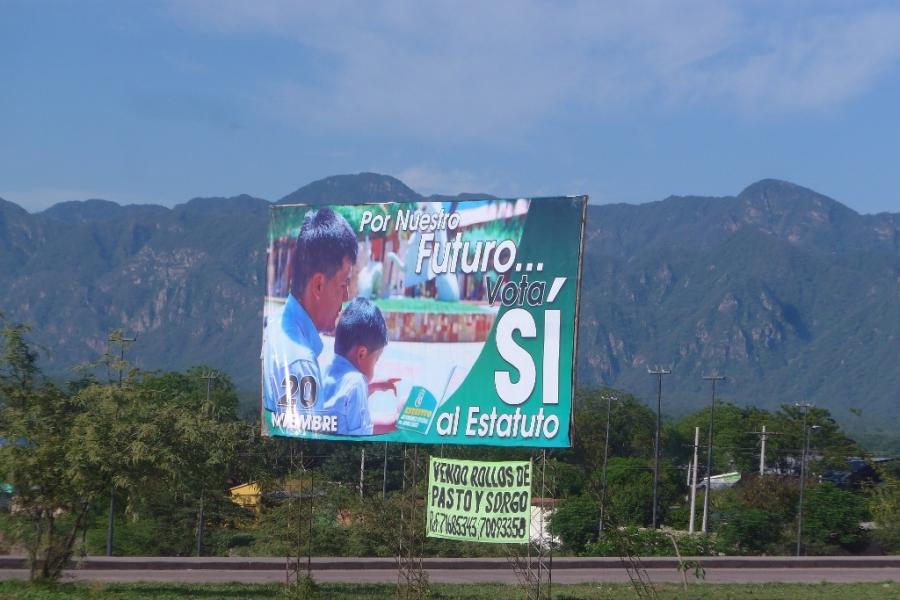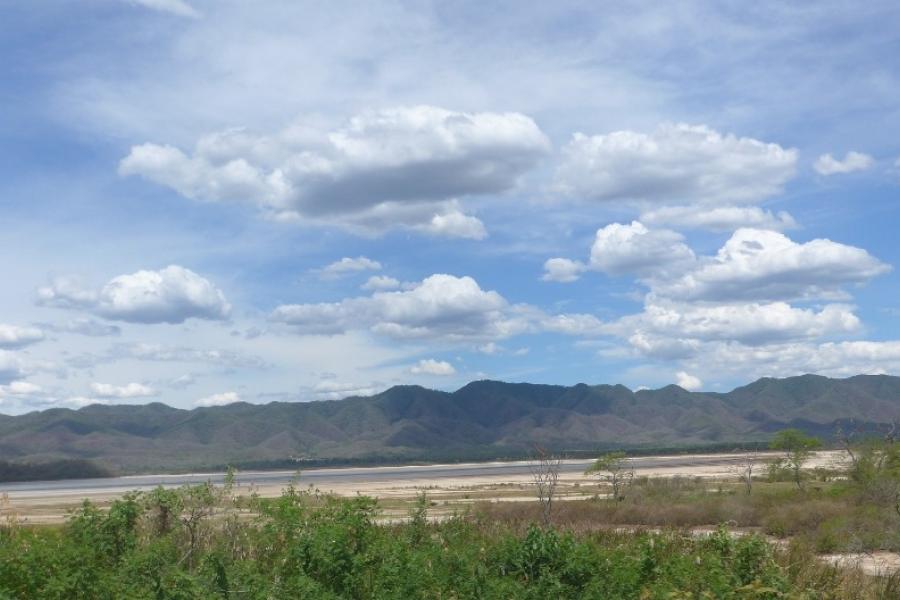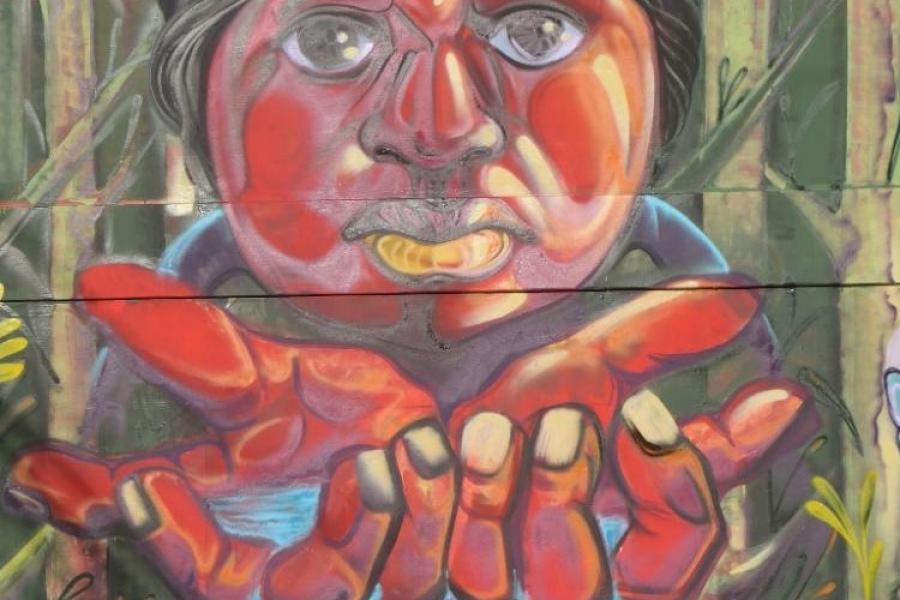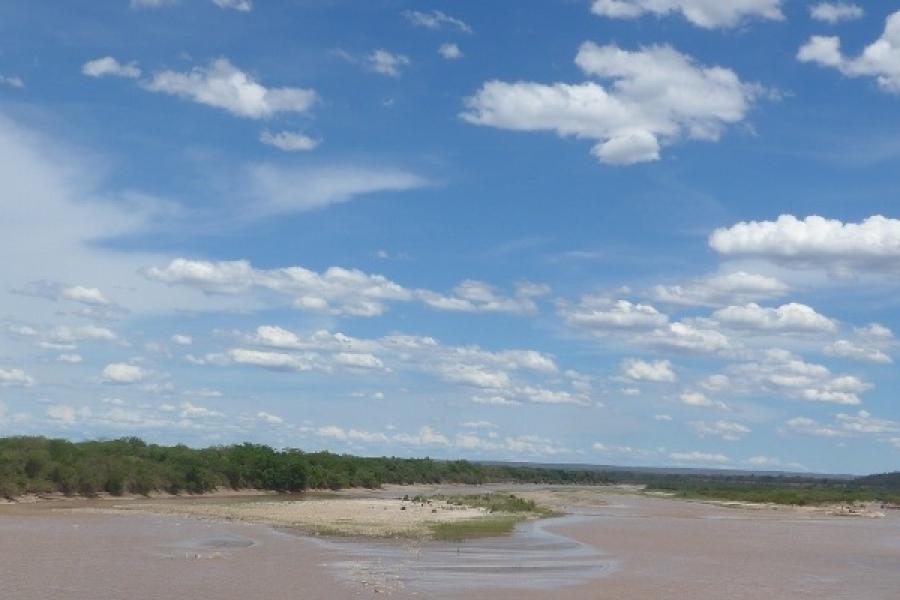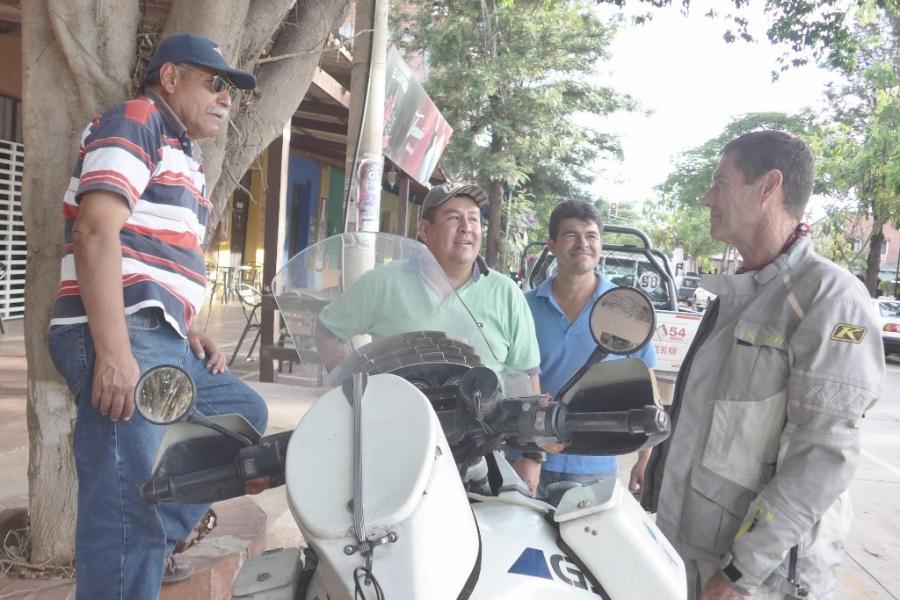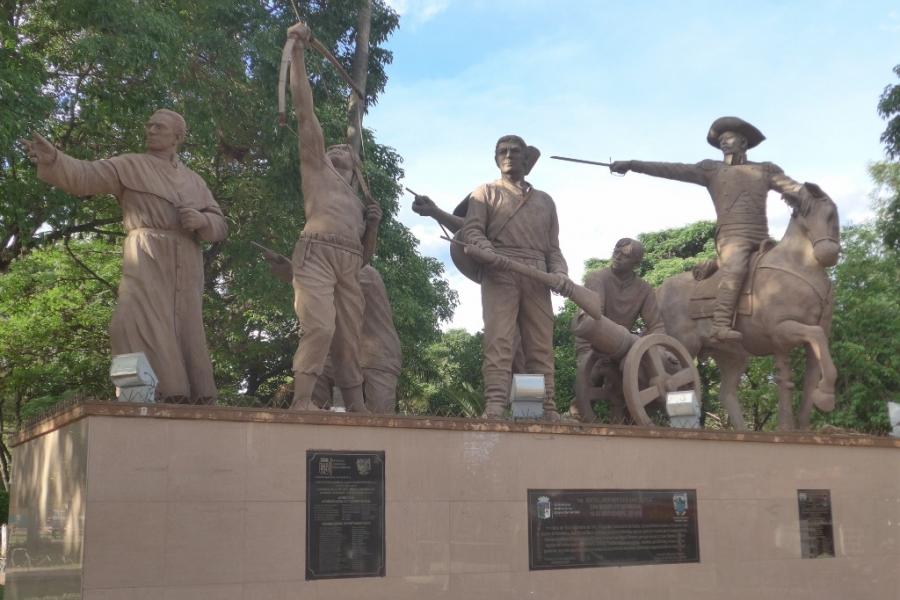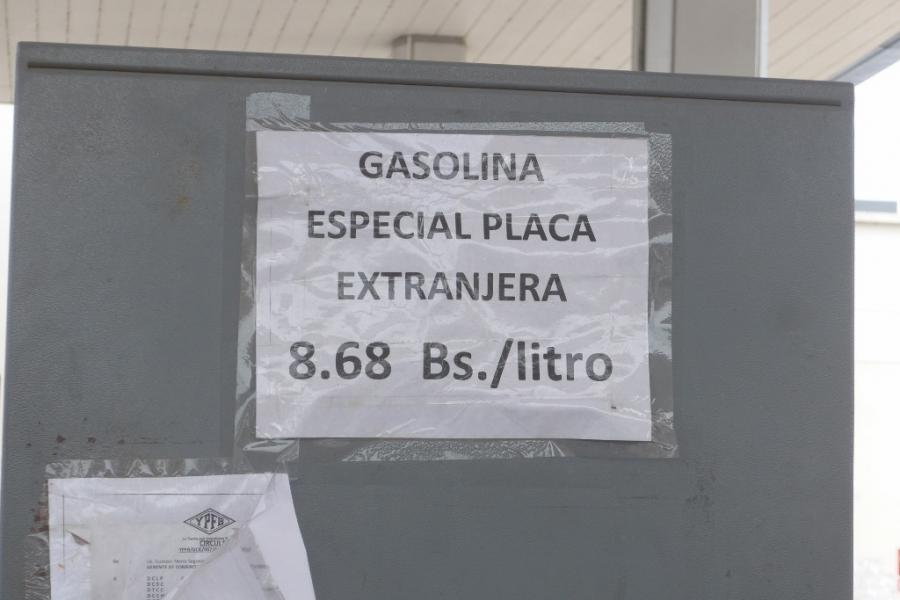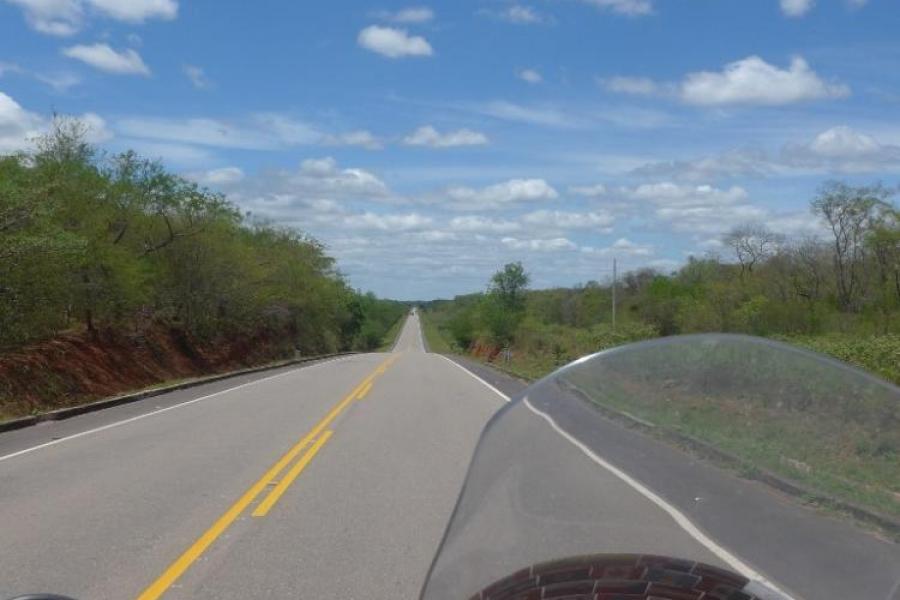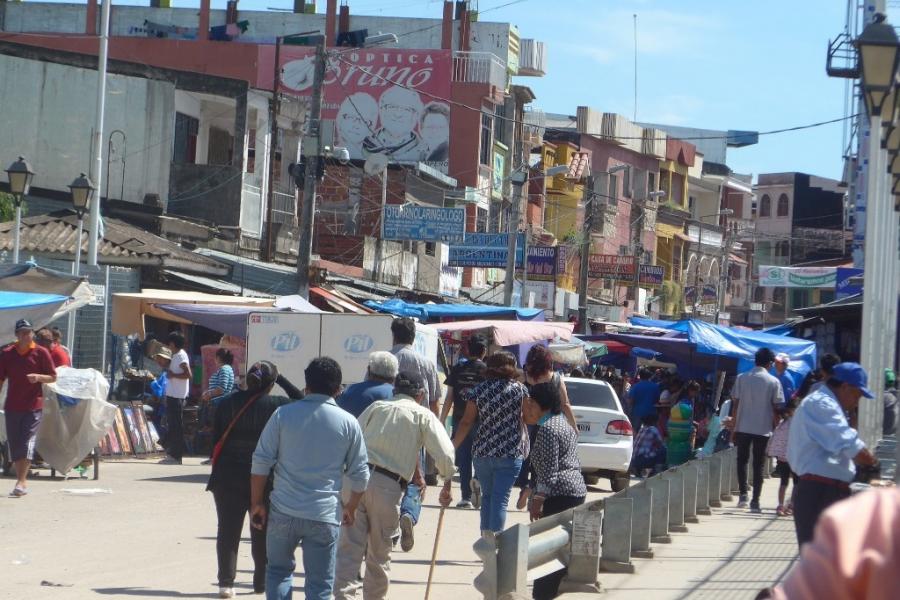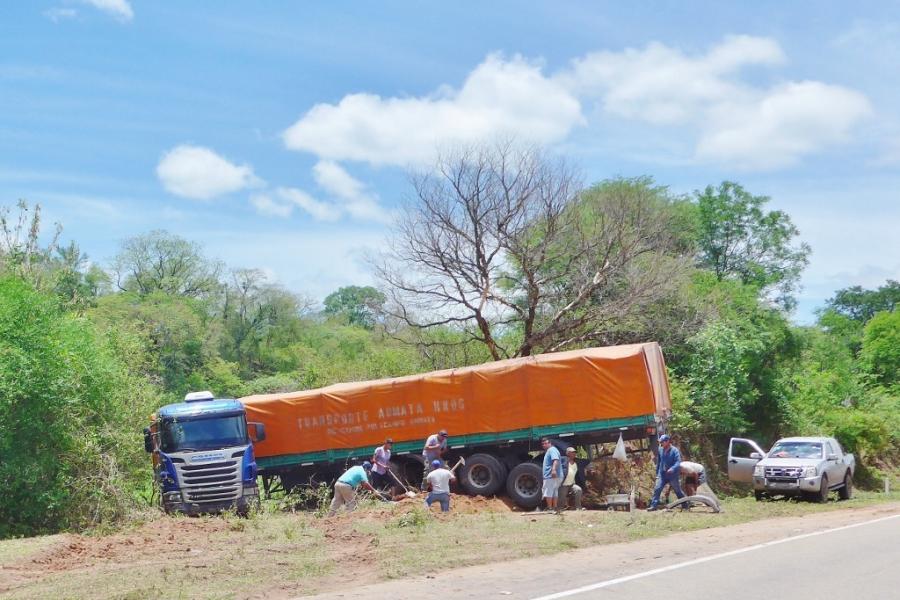A partly planned life (Originally posted 28 Nov 2016)
Country
We often tell people not to over-plan. Many grand journeys, we say, are never begun because the would-be travellers are overwhelmed by planning. Our idea is to do enough to ensure that the journey is possible, then get started and work out the detail as we go. As we get closer to each new phase of our journey we get to work on the detail. We find ourselves, as a result, constantly planning and refining.
As we found our way down through Peru and Bolivia we started to work on the problem of the Chaco, or, more precisely, how we would get across a vast area of flat and inhospitable scrub land that comprises part of Bolivia, Argentina and Paraguay. There were only two workable options. We could go through Paraguay on a road of unknown quality with little fuel and accommodation, or on a better road through northern Argentina that would add several days to our journey.
The Gran Chaco covers about 650,000km2 between the Andes in the west and the Rio Paraguay in the east. Substantial areas have good soils suitable for agriculture, other areas are open savanna with high rainfall, tropical grasses and lots of insects; cattle country. The remainder, about one third, has poor soils and little rainfall.
The area has been disputed territory since 1810 but Bolivia's loss of its coast line during the War of the Pacific with Chile from 1879 to 1883 started an easterly expansion seeking access to the Rio Paraguay and a shipping route to the outside world. Conflict was inevitable but it was the belief that the Chaco contained extensive oil reserves that finally pushed Bolivia and Paraguay into the Gran Chaco War between 1932 and 1935. The role of Standard Oil in supporting Bolivian ambitions and Royal Dutch Shell in supporting the Paraguayans was one of the more depressing aspects of the conflict. The promised oil failed to materialise and the war ended with Bolivian ambitions foiled and Paraguay's territory reduced.
Mennonites started to migrate to the area from Canada in the 1920s and from Russia in the 1930s. The Mennonites are an Anabaptist Christian denomination and they were seeking an escape from persecution, particularly in Europe where their staunchly pacifist beliefs put them in conflict with both Catholic and Protestant majorities. When Bolivia started to move into the Chaco, the Paraguayan government offered the Mennonites large tracts of land on the proviso it was occupied and farmed.
The Mennonites did not fight in the Chaco War but they did support the Paraguayan cause by supplying food for the army. It was, however, not as good a deal as it seemed. Much of the land ceded to the Mennonites had poor soil and wasn't much use for any type of agriculture. Many communities struggled and many people died of starvation in the early years. Today, the Mennonites farm vast tracts of Paraguay and Argentina and the wealth produced by this modern industrial agriculture is impressive.
As we lacked enough information on the Trans Chaco across Paraguay to make a decision, we rode down to the Bolivian town of Villamontes on the western edge of the Chaco to get some first hand information. At the end of a day of investigation, we decided that it was only the first day of the crossing that would cause a problem. The first 100km of a 450km day was dirt road with a considerable portion sandy and well chewed up by heavy transport. We made our plan in as much detail as we could and took the decision to try our luck in the sand of the Trans Chaco Highway. We went to bed happy that we had a good workable plan.
The next morning, the decision didn't look quite so workable. I had been recovering from a chest cold for more than a week and didn't feel all that sharp. I had been awake for some hours reviewing the information we had and the options open to us. As we pulled on our stinking riding suits I told Jo I didn't think I could ride 50km of gravel then 50km of sand and then another 350km of bad roads in the available daylight. Elephant's driving lights and high beam had both packed it in and if we were still out when dark fell we would be in pain city.
“So, we go through Argentina?” Jo said. “We haven't done any planning for that.”
“No, but the border shouldn't cause a problem and we can make the rest up once we get across,” I replied.
Two hours later we were at the Bolivian border town of Yacuiba and the first crack appeared in our day. We couldn't find the road to the border. The road that should have gone to the border bridge was blocked by markets that looked as though they had been there for years. The traffic consisted entirely of taxis and it just seemed to be circulating through the village with no way through. We tried a few other ways around but without success and then, almost in an act of desperation, joined the stream of taxis flowing through the village.
When the taxis reached the southern most part of the village and turned north again we stopped. There was a policeman standing on the corner. We called out and asked the way to the border.
“Por aqui,” he said and pointed into the writhing mass of the markets.
I turned south out of the line of taxis and started into the market street creeping along with both feet down to brace the bike against bumps. We pushed on asking each other if this could possibly be right but unable to do anything else but go forward. Fifty metres down the road the crowd parted and we rolled onto the border bridge with the Bolivian Migración office directly in front of us.
OK, job done, we thought. I parked the bike and we had our passports stamped out of Bolivia, then handed in our Temporary Import Permit for Elephant at the Customs desk. Easy as, we thought, and headed for Argentinian Immigration. We handed over our passports. The clerk wasn't impressed. We didn't, he claimed, have our receipts for the Tourist Fee. We knew nothing about a tourist fee but didn't see a problem. We asked where the cashier was so we could pay it only to be told that it couldn't be paid at the border, or at any office, and could only be paid on-line. We would, he said, have to go back into Bolivia, pay the fee on line, print the receipt and then return.
Our day was starting to look decidedly ordinary. I left Jo to watch over Elephant, walked back into Bolivia without bothering with minor stuff like Immigration, found a taxi and rode back three kilometres to the nearest internet café. The taxi waited while I navigated an arcane Argentinian web-site, paid the tourist fee of $US100 each and printed the receipts. I gave the taxi driver the last of my Bolivian money as a handsome tip when I got back to the border to finish the formalities.
So, we had taken three hours to get through the border, but we still had problems. The insurance office at the border wasn't open, we didn't have any Argentinian money and we still had about 300km to get anywhere useful in this vast country. Our easy alternative day had somehow become less easy and would end with us exhausted and dehydrated many hours later.
We recovered from our Bad Planning Day well enough and crossed a thousand kilometres of the Chaco in a couple of those long travel days that Australians grow up on and do as well as anyone. By the middle of the week our tails were up and we had turned north again, crossed into Paraguay, found accommodation in the capital Asunción, booked Elephant into the BMW dealer for some work and recovered our sense of humour. A few good nights' sleep, some tasty food and our small world was righted once again.
We could have stayed in Villamontes for another day or two and done all the research we needed to ensure a smooth change of plan. That would have been a sensible approach but that would also have been a different Team Elephant. This Team Elephant has a bias for action and, as a result, sometimes makes faulty decisions. That is just the nature of the beast and maybe it isn't a bad thing. For every time our plans have turned to custard, there are many more where they have worked out fine and where we have discovered things we never could have anticipated and had experiences we never could have planned. I guess that is the moral to this story. It is best not to be too concerned about uncertainty because with it comes opportunity in equal measure.

